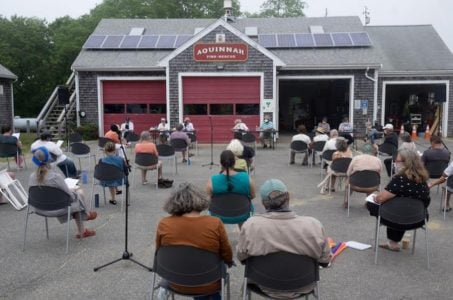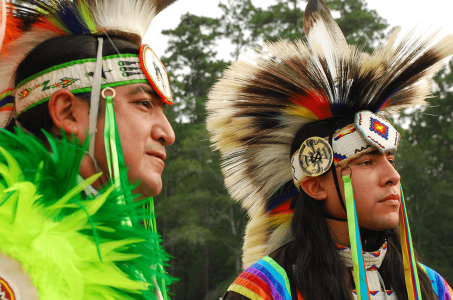California Card Rooms Notch Legal Victory as Ninth Circuit Court Rejects Tribes Injunction Bid
Posted on: December 4, 2020, 12:34h.
Last updated on: December 4, 2020, 02:44h.
On Thursday, the US Court for the Ninth Circuit ruled that California tribal gaming companies cannot force their card room rivals to cease offering table games, such as blackjack.

In an unpublished opinion, District Judge John Menendez balked at the efforts of three Golden State tribes. The tribes hoped for injunctions that would prevent card rooms from featuring banked table games. Tribal operators in the largest US state have long argued their exclusivity accord with California should bar card rooms from offering similar table games. The tribes have sought to leverage political clout to win their desired outcome.
The Ninth Circuit sees things differently, with Mendendez noting that the state contends that while it recognizes tribal exclusivity, it doesn’t grant that status when it comes to operating legal, banked card games.
We need not decide today whether exclusivity is a compact term,” writes Menendez in his opinion. “Even assuming that it is, the remedy the tribes seek, an injunction requiring the state to enforce its laws against non-Indian card rooms that allegedly operate illegal banked card games, cannot be granted.”
In terms of gaming regulations, the primary differences between California’s card rooms and tribal casinos are twofold. First, only tribal venues can have slot machines. Second, dealers at card rooms act as the bank, not the house. The venue makes money by levying a fee tied to the table limit on each hand played.
State Under No Obligation
California tribal gaming properties, such as Morongo and Pechanga, are important economic engines in the state. They drive more than $8 billion in annual gaming revenue while employing tens of thousands of workers. Some Indigenous groups behind Golden State casinos believe the state is obligated to enforce exclusivity, which presents a significant threat to the card rooms.
However, Menendez writes that there’s nothing in the tribes’ compacts with California that obligates the state to enforce exclusivity. He added that the accords contain no avenues for the tribes to seek remedy against purported breach of contract. Citing the 2012 ruling in Summit Media LLC v. Los Angeles, the judge notes injunctive relief for the tribes in this case would mean the state is contracting away its right to “exercise the police power,” something state law forbids.
The opinion also indicates there’s nothing in the tribes’ compacts with the state that would allow the Ninth Circuit to force California to allocate law enforcement resources in a specific manner.
Presumably, that includes mandating the California Bureau of Gambling Control (CBGC) to enforce exclusivity. The CBGC is overseen by the attorney general’s office and is the state’s enforcement arm for gaming-related matters. Gov. Gavin Newsom (D) and Attorney General Xavier Becerra, both Democrats, received contributions from tribal gaming groups in 2018.
Much Needed Win
The Ninth Circuit ruling comes at a pivotal time for California’s card rooms, because many of those roughly 70 venues across the state are dealing with a second round of coronavirus closures because of a recent stay-at-home directive issued by Newsom.
Tribal casinos aren’t obligated to comply with that order because those entities are federally regulated.
As for the tussle with the card rooms, it remains to be seen what the tribes’ next move is. But it’s likely the rivalry bickering isn’t over. For example, California voters are likely to consider a sports betting ballot proposition in 2022, one pitched by the tribes, that would exclude the card rooms.
Related News Articles
Most Popular
Genovese Capo Sentenced for Illegal Gambling on Long Island
NBA Referees Expose Sports Betting Abuse Following Steve Kerr Meltdown
UPDATE: Former Resorts World & MGM Grand Prez Loses Gaming License
VEGAS MYTHS RE-BUSTED: The Traveling Welcome to Las Vegas Sign
Most Commented
-
UPDATE: Whiskey Pete’s Casino Near Las Vegas Closes
— December 20, 2024 — 33 Comments -
Caesars Virginia in Danville Now Accepting Hotel Room Reservations
— November 27, 2024 — 9 Comments -
UPDATE: Former Resorts World & MGM Grand Prez Loses Gaming License
— December 19, 2024 — 8 Comments -
NBA Referees Expose Sports Betting Abuse Following Steve Kerr Meltdown
— December 13, 2024 — 7 Comments
















Last Comment ( 1 )
I believe the focus for voters, should be to ensure strict enforcement. A very critical examination of how the various Tribal Gaming Commissions and NIGC currently enforce California tribal casinos must be openly debated.Today, Americans gambling at Californias Indian casinos have minimal recourse, when reporting serious electronic promotional violations. The history of the Tribal casinos enforcing these types of violations is poor or non existent. The violations never get officially disclosed to the public, because the tribe enforces itself. And the NIGC provides recommendations, not enforcement. The SBGC claims no authority to enforce these types of violations either. Ultimately the NIGC and DOI are responsible for protecting Americans from financial harm caused by tribal casinos. California tribal casinos ability to accurately program and process electronic aspects of gaming should be reviewed. These same electronic promotions will be connected with all new betting. Only tribal casinos with a record of fair, transparent, proactive, and stringent enforcement should be considered. California's gamblers assume they are protected. There is no comparison between state run enforcement (nevada), and the Tribal self enforcement and NIGC oversight in California. I intend on factually covering it. I have had numerous encounters with all 3 Commissions. I suggest their opposition run on trust and integrity and force the tribes to discuss their track record in this area. The gamblers actually fund everything involved. And nobody is covers their viewpoint. It's the only area of the proposal which will directly affect California gamblers. The demographic that actually funds it.